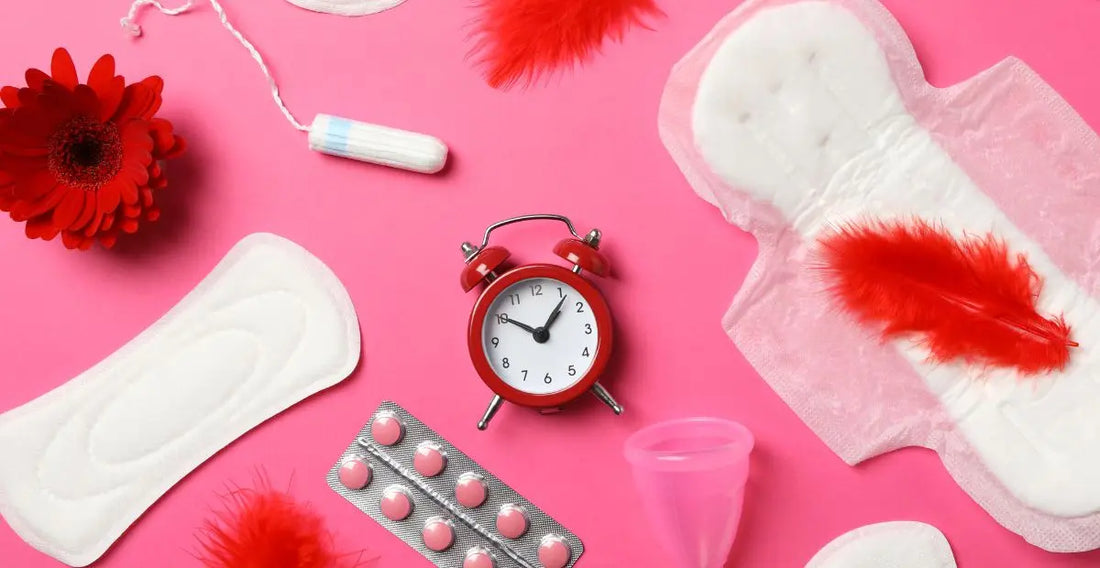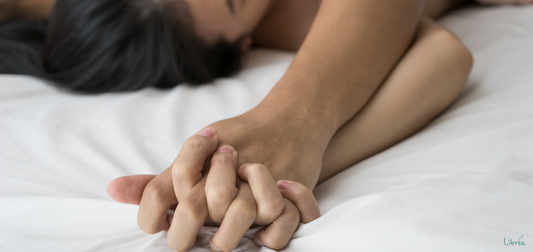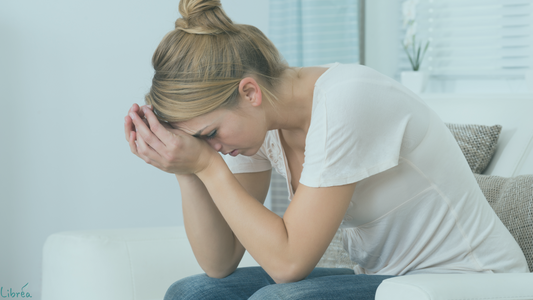
What is menstruation? No taboo!
Share
What is menstruation?
The menstrual cycle is the mechanism that prepares the woman's body to give birth each month, starting from puberty until menopause. It starts on the first day of bleeding and ends on the first day of the next bleeding, continuing in this way month after month, if fertilization does not occur. The duration of the menstrual cycle varies for each woman based on certain criteria or the stages the woman's body goes through: genetic factors, changes in the woman's life or emotional shocks, the first years of menstruation or premenopause (the period before menopause).
In Romania, 4.8 million women menstruate. Of these, more than 702,800 are adolescent girls between the ages of 12 and 18. Currently, unfortunately, menstruation is still a taboo subject for many families in Romania and beyond. In the absence of a school-based sex education program, most teenage girls learn about what's going on with their bodies either from friends or from unreliable sources on the Internet. It's time to end this practice and start talking freely about what makes us women: menstruation. So, without further ado, let's get to the point.
The menstrual cycle and the other cycles that are not talked about
Of course, we all know about the existence of the menstrual cycle. But how many of us know that there are still two other cycles, defining for the woman's body, but also for the reproductive functions?
Ovarian cycle represents all the changes that occur in the ovaries in a 28-day interval. During this period, two important phenomena occur: the formation and expulsion of the egg and the production of female sex hormones. The period of ovulation (the time when the egg is expelled) is the most fertile time of the month for a woman and the most favorable time to get pregnant.
This hormonal variation influences the condition of the endometrium. Because it no longer receives as much blood and oxygen, the upper lining of the mucous membrane gradually degenerates and empties itself through the vagina as bleeding, thus causing what we call a cycle.
Uterine cycle represents all the changes undergone by the uterine mucosa following the action of the hormones secreted by the ovary. The uterine mucosa also has its own cycle and falls between menstruation (proliferative phase) and ovulation (secretory phase).
The most common questions teenage girls ask themselves
 For the first period you can use menstrual panties for teenage girls.
For the first period you can use menstrual panties for teenage girls.
We know. There are many unknowns when you have your first period. But, we are here to be with you with the answers you are looking for. And if you don't find the answer you're looking for among the questions below, you can write us a message and we'll be happy to answer you.
What changes do they go through during the menstrual cycle?
On a physical level, hormones influence the secretion of cervical mucus. The amount of discharge will increase, peaking around ovulation when the discharge becomes clear and slippery to help the sperm slide towards the egg. In the progesterone phase, the volume of mucus decreases, it becomes thicker, opaque and sticky. This type of mucus makes it difficult for the sperm to move to the egg, because at that time of the month the woman's body is not ready for fertilization.
On an emotional level, some women may experience an imbalance, dominated by irritability, depression or even hypersensitivity. But, every woman is different. Some of us experience strong symptoms during our menstrual cycle, while others experience no symptoms at all.
What is the normal color of menstrual blood?
Of course, each of us is different , and the menstrual phase is unique and differs from woman to woman. This means that some women may have red blood at the beginning and brown blood at the end, while others may experience brown discharge at the beginning of their period, turning to red blood later on. Don't panic, menstrual blood can contain clots or be mixed with other body fluids. This is normal and a cleansing process that we all go through. Month by month.
The unpleasant smell of blood - is it a sign of infection?
If you have experienced an unpleasant smell of blood since your first period, there is no need to panic. It means that this is how your body works. But if the smell changes from month to month, it would be best to see a doctor.
Can I get pregnant during my period?
Yes. Because our bodies are very different, it is sometimes possible for the period of ovulation to happen right before your period. Because sperm have a life span of 3-5 days, it is possible for such synchronization to occur when you are menstruating. Therefore, to prevent an unwanted pregnancy, it is best to use protection methods even during menstruation.
How much blood do we lose during menstruation?
A woman loses an average of 30-40 ml of blood during menstruation. If we are talking about heavy menstruation, the amount of blood lost can even reach 60-80 ml. However, although it seems like a lot, there is no need to panic. This blood is no longer beneficial to your body and the body's best option is to eliminate it. It's all part of the process.
How can I get rid of cramps?
Cramps result from the strong contractions of the uterus during menstruation. Basically, pain relievers are your best friend during your period, but if you want a natural remedy, heat a bottle of water and hold it on the painful area. Another suggestion we have for you is the Twist yoga pose. Lie on your back, pressing your shoulders into the yoga mat. Bend the knee slightly by touching it with the opposite hand and let it fall gently on the other book, creating a twist in the middle and stomach area. Combine this posture with conscious breathing and take 10 deep breaths before changing position. Everything will be fine.
Menstruation in numbers
To get a little closer to what menstruation really means globally, we've gathered some statistics with and about women and their periods. A woman has an average of 13 cycles per year, with an average duration of 28 days. That means 494 cycles in a lifetime, 2470 days, so 7 years a woman spends bleeding. During this entire period we use 25 pads on "those days of the month" and 12,350 pads over a lifetime. Of these, we discard 12,000, with an average extinction time of 800 years. Surprising, right? For this and many other reasons, it is imperative for us to step forward in caring for the planet and try to adopt healthier methods of protection, both for ourselves and for the environment.
Until next time, take care!
Libre team
#Libréagurl






